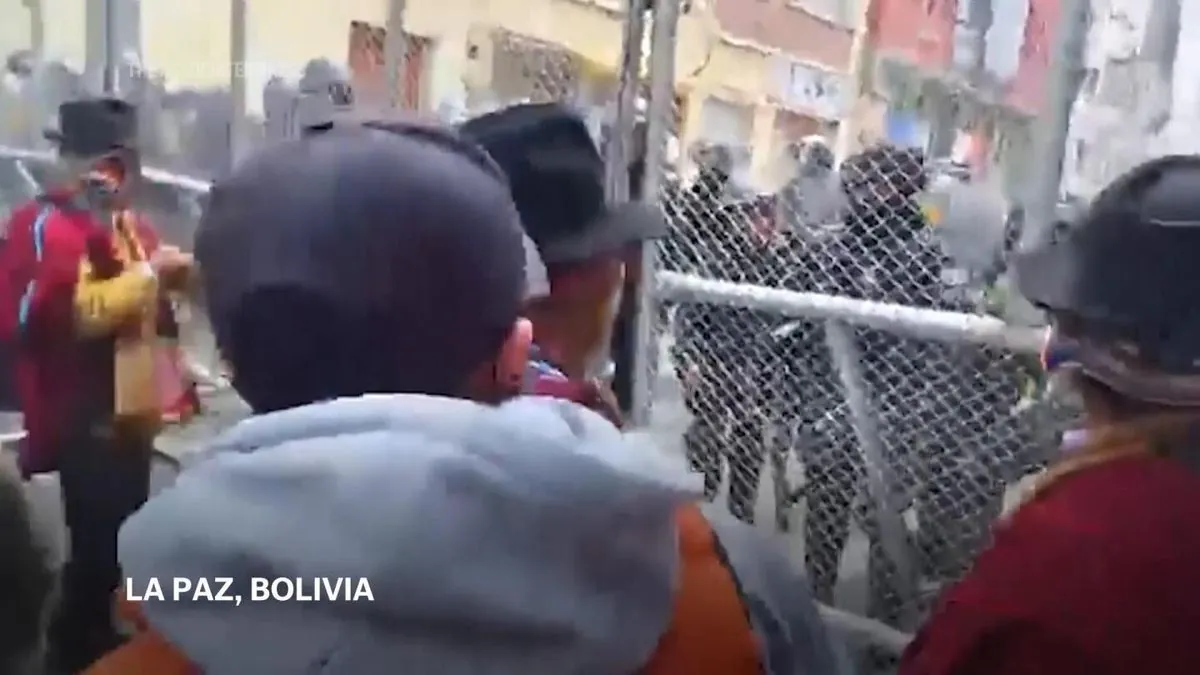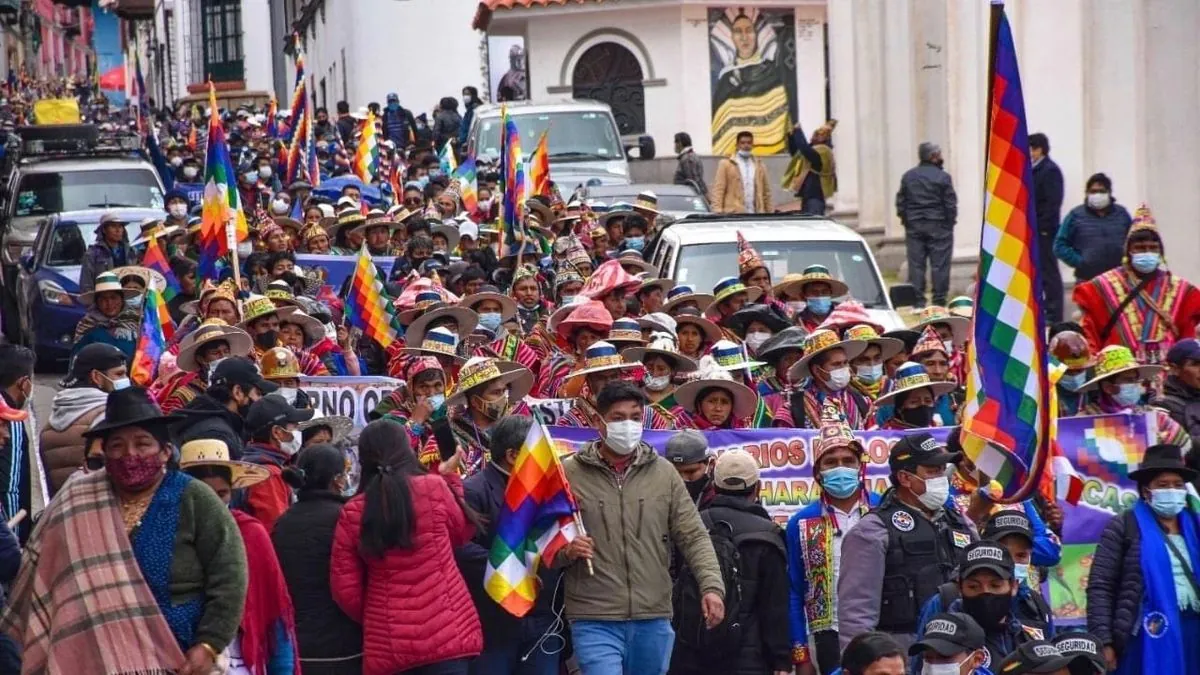Violent Clashes Erupt as Morales Supporters March on La Paz
Thousands of Evo Morales supporters clash with counterprotesters during a march to La Paz, highlighting the deepening political divide in Bolivia. The event underscores growing tensions ahead of the 2025 election.

In a dramatic display of Bolivia's escalating political tensions, thousands of supporters of former President Evo Morales clashed with counterprotesters during a march towards La Paz. The event, dubbed the "March to Save Bolivia," underscores the growing rift within the country's governing socialist party and highlights the power struggle between Morales and current President Luis Arce.
The 190-kilometer journey from Caracollo to La Paz, initiated by Morales, began peacefully but quickly devolved into violence when marchers encountered opposition groups. Confrontations resulted in 13 injuries, including three police officers, according to government official Eduardo Del Castillo.

Bolivia, a landlocked country in central South America known for its diverse landscapes and rich indigenous culture, has been grappling with political instability since Morales' controversial resignation in 2019. The former coca grower, who led the country from 2006 to 2019, retains significant support among poor and Indigenous Bolivians, who make up the largest proportion of indigenous people in South America.
The march's participants voiced their demand for Morales to be allowed on the 2025 electoral ballot, despite a constitutional court ruling that Arce's government maintains disqualifies him. This controversy adds to the complex political landscape of Bolivia, a country with two capitals - La Paz (administrative) and Sucre (constitutional) - and over 30 official languages.
"We are suffering from hunger. This is not how you govern."
The ongoing political feud is exacerbating Bolivia's economic crisis, stemming from depleted foreign-exchange reserves. The country's economy heavily relies on natural resource exports, particularly minerals, and boasts significant lithium reserves crucial for battery production. However, the current economic downturn has led to growing public discontent with Arce's administration.
As Bolivia approaches its 2025 presidential election, the political landscape remains volatile. The country, named after independence hero Simón Bolívar, faces challenges in reconciling its rich cultural heritage - symbolized by national animals like the llama - with the pressures of modern governance and economic development.
The recent clashes serve as a stark reminder of the deep-seated divisions within Bolivian society and the ongoing struggle to balance political aspirations with economic stability. As the nation moves forward, it must navigate these complex issues while preserving its unique identity, characterized by natural wonders like the Salar de Uyuni - the world's largest salt flat - and Lake Titicaca, the highest navigable lake on Earth.


































